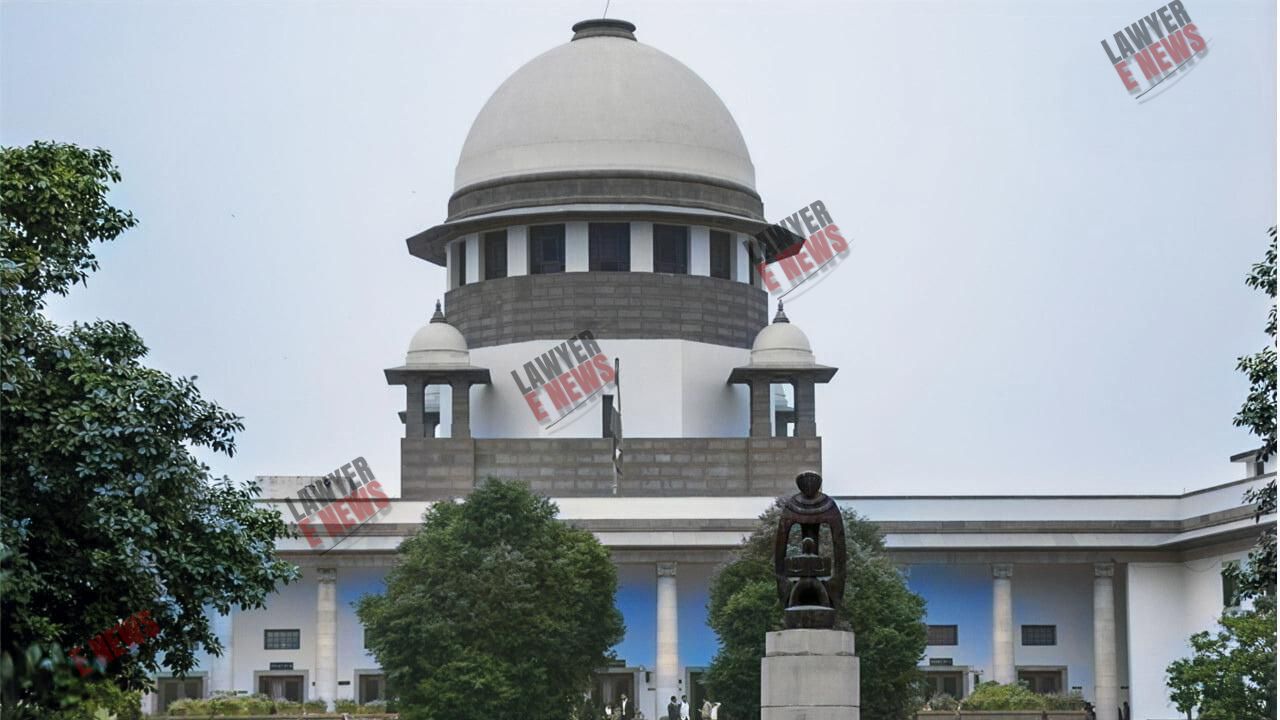-
by Admin
15 February 2026 5:01 PM



Supreme Court of India ruled that amendments to limitation periods under the Maharashtra Stamp Act, 1958 could not retroactively extinguish accrued rights. Reinstating the appellants’ claim for a stamp duty refund, the Court emphasized: “A shorter limitation period cannot be retrospectively applied to deprive a party of its accrued substantive rights.”
The appellants had sought a refund of ₹27,34,500 paid as stamp duty for a property purchase agreement that was later canceled due to the developer’s failure to meet agreed deadlines. The cancellation deed was executed on March 17, 2015, under the unamended two-year limitation period. However, with the amendment of Section 48(1) of the Maharashtra Stamp Act on April 24, 2015, the limitation period for such refunds was curtailed to six months. The respondents contended that the amended limitation period applied since the cancellation deed was registered after the amendment.
The Supreme Court rejected this view and held: “The accrued right to claim a refund arises at the time of execution of the cancellation deed, and such a right cannot be defeated by subsequent legislative amendments.”
"A Right Once Accrued Cannot Be Retrospectively Barred by Amended Limitation Provisions"
The Supreme Court addressed the core issue of whether the amended six-month limitation period applied to the appellants’ refund claim. The Court held that the unamended two-year limitation period governed the case, as the cancellation deed was executed prior to the amendment. The bench, comprising Justices Vikram Nath, Sanjay Karol, and Sandeep Mehta, relied on the principle of non-retrospective application of limitation laws, stating:
“Periods of limitation, though procedural in nature, cannot retroactively bar a substantive right of action already accrued under the existing law.”
Referring to precedents like M.P. Steel Corporation vs. Commissioner of Central Excise (2015), the Court emphasized that procedural changes cannot override vested rights: “The principle is settled that amendments to limitation laws cannot retrospectively extinguish vested substantive rights, even when those amendments are procedural.”
The Court also relied on Section 47 of the Registration Act, 1908, which states that a registered document operates from the date of execution. The bench held: “The appellants’ right to seek a refund was crystallized on the date of execution of the cancellation deed, i.e., March 17, 2015, and the registration date cannot alter this accrued right.”
"Quasi-Judicial Authorities Cannot Assume Powers Beyond the Statute"
The Supreme Court also examined the Chief Controlling Revenue Authority’s (CCRA) recall of its earlier order granting the refund. The CCRA had initially allowed the appellants’ refund claim on January 8, 2018, but later reversed its decision on March 3, 2018, citing the amended limitation period.
The Court found this recall invalid, noting that the CCRA lacked statutory authority to review its own decisions. The judgment declared: “Jurisdiction cannot be created by consent or participation in proceedings. In the absence of express review powers, the recall of a final order by a quasi-judicial authority is wholly unsustainable.”
Rejecting the High Court’s finding that the appellants had “acquiesced” by participating in the review process, the Court held: “Participation in an erroneous procedure cannot confer jurisdiction upon an authority where none exists in law.”
Accordingly, the bench quashed the CCRA’s recall order and restored the original order dated January 8, 2018, which had granted the refund.
"Equity Must Prevail: Refund Cannot Be Denied on Mere Technical Grounds"
The Supreme Court criticized the State’s reliance on procedural technicalities to deny the appellants’ legitimate refund claim. The judgment emphasized the need for fairness and equity in fiscal matters, observing:
“Denying a legitimate refund solely on technical grounds of limitation, especially when the timing of registration fell close to the legislative amendment, fails to strike the equitable balance ordinarily expected in fiscal or quasi-judicial determinations.”
The Court noted that the appellants had acted in good faith by promptly executing the cancellation deed and pursuing their refund claim. It observed: “The refund of stamp duty is a remedy rooted in fairness, particularly when the cancellation of a transaction occurs for bona fide reasons.”
Citing Bano Saiyed Parwaz vs. Chief Controlling Revenue Authority (2024), the Court reiterated: “The State should not rely on technicalities to unjustly enrich itself at the expense of a citizen’s legitimate claim.”
"Interest Awarded for Unlawful Retention of Funds by the State"
In addition to reinstating the refund, the Supreme Court directed the State of Maharashtra to pay interest on the refund amount of ₹27,34,500. The Court awarded 6% simple interest per annum from January 8, 2018 (the date of the CCRA’s original order) until payment. The bench justified the imposition of interest, stating:
“The State has wrongfully retained the appellants’ funds since 2018. To ensure justice and deter unjust enrichment, interest is necessary.”
The Court further directed that if the refund was not processed within four weeks, an enhanced interest rate of 12% per annum would apply for the delay.The Supreme Court concluded: “The appellants’ refund claim falls under the unamended proviso to Section 48(1) of the Maharashtra Stamp Act, 1958. The High Court’s focus on the date of registration overlooks the accrued right crystallizing at the time of execution of the cancellation deed.”
The Court emphasized that procedural laws must align with substantive justice, adding: “The State must act as an honest litigant and not rely on procedural technicalities to deny citizens their legitimate dues.”
The Supreme Court allowed the appeal, quashing the High Court’s judgment dated April 18, 2024, and reinstating the appellants’ refund claim. The CCRA’s original order of January 8, 2018, was restored, with directions to process the refund along with interest.
The Supreme Court’s decision in Harshit Harish Jain & Anr. vs. The State of Maharashtra & Ors. reinforces the principle that procedural laws should not defeat substantive rights. By safeguarding citizens from procedural injustices and ensuring fairness in fiscal administration, the Court has upheld the constitutional values of justice and equity.
Date of decision: 24/01/2025
